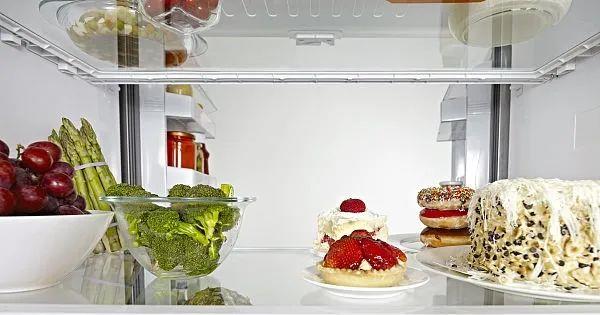Is it better to put the food in the refrigerator when it is cold or when it is hot? The truth is ……
Endless leftovers
What would you do with it?
In order to avoid waste
Many people choose to keep leftovers in the refrigerator.
After that, it is heated and eaten.
Is this really right?
Which foods are suitable for the refrigerator and which are not?
Is it better to put the food in the refrigerator when it is cold or when it is hot?
The real scientific way is to put the food that can’t be eaten in the refrigerator while it is hot, and the sooner the safer it is.
In fact, there are bacteria in meals and foods, such as Escherichia coli, a conditional pathogen that is not harmful to human body at ordinary times and can only make people sick when it reaches a certain amount, and Staphylococcus aureus and Salmonella, which are virulent pathogens that will do great harm to human body when the number is small. Once these bacteria proliferate and are eaten by people, there will be symptoms such as abdominal pain, diarrhea, nausea and vomiting, and even life-threatening.
Temperature has a great influence on the reproduction speed of bacteria in food: when the temperature exceeds 60℃, most bacteria cannot survive; When the temperature is lower than 4℃, the proliferation of most bacteria obviously slows down. And 4℃~60℃ is called the "dangerous temperature zone" of food, during which most bacteria can grow and reproduce quickly.

Therefore, the longer food is kept at room temperature, the more bacteria will multiply. The purpose of putting food in the refrigerator while it is hot is to reduce the temperature to below 4℃ as soon as possible before bacteria multiply in large quantities, so as to reduce the time for bacteria to multiply rapidly.Therefore, the food that can’t be eaten should be set aside in advance, put in a fresh-keeping box and stored in the refrigerator as soon as possible.
Q: "If hot dishes are put in the refrigerator, will the refrigerator be injured?"
A: It won’t hurt. The refrigerator is not that fragile. Although putting food in the refrigerator while it is hot will temporarily increase the temperature of the refrigerator, the temperature sensor of the refrigerator will start cooling when it senses the temperature change, so that the refrigerator can return to a low temperature state.
What should I pay attention to when saving leftovers?
1. Try not to eat "saliva dishes"
The "leftovers" eaten the next day, if all the leftovers are "saliva dishes", the bacteria in the leftovers will definitely increase overnight, so it is not recommended to eat. If you can’t finish a meal, it is recommended to store it with clean tableware before eating. Sorting and storing refrigerated leftovers can avoid cross-infection of bacteria. You can use fresh-keeping boxes, fresh-keeping bags, etc., or attach a layer of fresh-keeping film to the dishes.

2, storage time should not be long, fully heated before eating.
Although the leftovers of the previous day can be killed by high temperature or microwave heating, it is not recommended to store the leftovers in the refrigerator for too long.

How long is it appropriate to refrigerate food in the refrigerator?
Green leafy vegetables are the most difficult to preserve, so they should be eaten as soon as possible, no more than 3 days, broccoli, cauliflower, etc. for no more than 1 week. Cabbage, peppers, mushrooms, etc. should be packaged and kept dry for a long time.
Rootstock plants such as carrots and white radishes can be preserved for 2 ~3 weeks at the longest as long as they are packaged.
Pasteurized milk can be stored in the refrigerator for 3 ~10 days, and it is best to drink it within a few hours after opening.
Aquatic products and meat can be stored in 0℃ fresh-keeping area for 2 ~3 days if they are cooked soon.
Fresh eggs can be stored in the cold room for 5 weeks, but the quality of eggs will drop by one grade every week, so they must be eaten as soon as possible.



Health tips
First, should the food be put in the refrigerator when it is cold, or put it away when it is hot?
The food you can’t finish should be put in the refrigerator while it is hot, and the sooner the safer it is.
Second, what should I pay attention to in the preservation of leftovers?
Try not to eat "saliva dishes";
It should not be stored for a long time, and it should be fully heated before eating.
3. What foods are not suitable for the refrigerator?
Not suitable for: sweet potatoes, potatoes and other root vegetables; Melon and eggplant vegetables such as tomatoes and eggplants; Tropical fruits such as bananas and lychees.
Fourth, "Listeria" should be especially vigilant!
Foods susceptible to listeria are:
Cold seafood;
Cooked food and meat stored for too long;
Ice cream;
Instant fruit and vegetable salad;
Fresh milk and goat’s milk without pasteurization;
Raw mushrooms, bean sprouts that are not fully cooked;
Cheese made from uncooked milk.